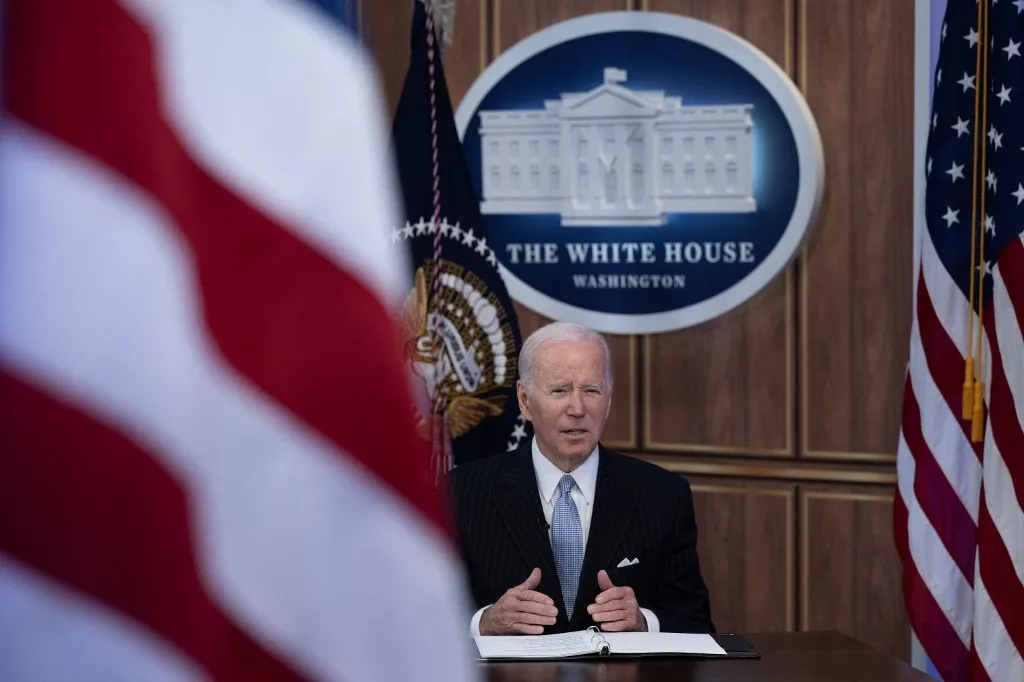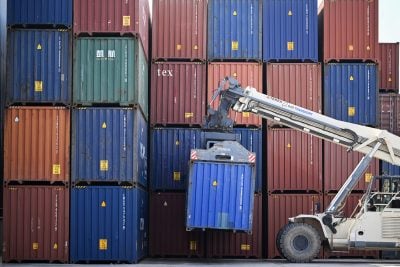In the context of the global food, fuel and pandemic crises, how do you think Washington’s Africa policy has shaped up compared to President Joe Biden’s predecessors?
The Biden team has done a pretty good job of coordinating with allies, the IMF, international bodies, the World Bank and others. There has been a host of disruptions to production and global supply chains – for example when Russia and Ukraine supply 30% to 80% of certain crucial cereals and grains, that disruption is an almost-unheard-of event.
With all this happening, not just the Biden administration but other governments around the world have done quite well, given the enormity of the challenges – certainly with regard to Africa and other middle-income countries.
We’re certainly not out of the woods with Covid, but it’s certainly a lot more manageable than it was even a year ago. And some of that is due to the production support policies that have helped flood the zone with billions of vaccines.
The fact that the Biden administration extended and expanded the policies of the Trump administration made sense in terms of offering very innovative financial guarantees to help companies sort through this. Through the International Development Finance Corporation (DFC), they’ve taken a very proactive role in getting short-and-medium term production of these critical vaccines.
The DFC has put more than a billion dollars, not just on the table, but out of the door. They’ve deployed that to support factories in Senegal and South Africa and India that are already producing vaccines.
Even on things like food security the State Department has done quite a good job working with the IMF, the World Bank and regional development banks on understanding where regional blockages are, coordinating and tweaking the release of supplies of US food stocks, and helping countries understand where the markets are going.
What has been the impact of these manifold crises on the Biden administration’s trade and investment policy in the region?
The good news is that the Biden administration has clarified and extended its predecessors’ support of the most important policy that there is for Africa – that is, the African Continental Free Trade Agreement (AfCFTA).
The administration has made it clear that there is support not just from DFC for investment, but from the US Export-Import Bank (EXIM), from the US Department of Agriculture, from the Departments of Commerce and of State. As Covid and the Ukraine war force countries to rethink their supply chains in food, energy, health and consumer goods, US companies are being encouraged to take a closer look at the opportunities the new trade area presents.
The US Trade and Development Agency (USTDA) has looked at infrastructure and regulations. There will be a significant pick-up next year when companies have more confidence that financial and market conditions are where they need to be.
I think the Biden team has put a lot of tools on the table and have been working with the IMF and regional banks to try and increase confidence and the ability of finance ministries to handle some of the payments issues. And the Biden administration is trying to support investment in key areas that would accelerate more jobs and economic growth, such as information and communications technologies, and infrastructure.
They’ve put the right things on the table, but it will take a little time for real-world conditions to be where they need to be for companies to increase investment.
Several countries – such as Ethiopia, Guinea and Mali – have lost their eligibility under the US African Growth and Opportunity Act (AGOA) trade deal. With a ceasefire in Ethiopia, and post-coup chaos pulsing through West and Central Africa, what happens now?
AGOA has always been a very close partnership with Congress, and Congress made it quite clear in the legislation that if there was a lack of respect for democracy – if you staged a coup – then you were going to lose AGOA eligibility.
Congress would not exactly be happy if any administration turned a blind eye to that. The review is annual, and the entire point is to give countries the incentive to fix what is needed. The administration is quite clear with countries when they lose eligibility about what they need to fix. So – fingers crossed – we’ll see what my current friends and former colleagues in the administration do on eligibility.
Has there been a real shift in US-Africa relations – not just in word, but in deed?
Yes, there’s no question about it – certainly between the Biden administration and its immediate predecessor. There is no question that African countries are an increasingly important partners. And I think we just saw that in the Cop27 meetings. African countries are an increasingly important part of the solution, be it to world growth, or solving food issues, or health or financial issues.
Africa’s not just “over there”. African countries are critical partners. Two things have been very helpful to see. The administration took a very careful, deliberate stance in crafting not just national security strategy but particularly strategy for Africa.
It didn’t just update and refresh the old strategy, but took a really new look at where Africa is going, what are Africa’s priorities and how the US can best support those. That was released in August and my sense is that it reflects a lot of consultation.
The other thing is the US-Africa Leaders Summit. It would have been great if it had been held earlier. But it’s great that it’s being held in the first two years, with three days of official meetings in Washington plus a whole bunch of side meetings. That’s a big deal. Very few regions get three days. That’s a good signal of the importance the Biden administration is putting on Africa.
Want to continue reading? Subscribe today.
You've read all your free articles for this month! Subscribe now to enjoy full access to our content.
Digital Monthly
£8.00 / month
Receive full unlimited access to our articles, opinions, podcasts and more.
Digital Yearly
£70.00 / year
Our best value offer - save £26 and gain access to all of our digital content for an entire year!
 Sign in with Google
Sign in with Google 



